Bill No. 4298. Will The Central and Local Authorities Be Able to Overcome the Split for the Sake of the State?
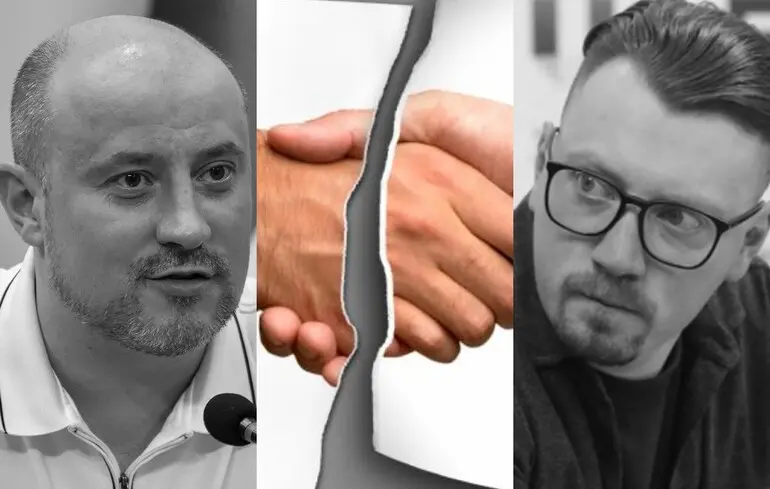
Powers - money - supervision. These are exactly the three main things on which decentralization in Ukraine should be based. The communities received money and powers - even if the war made some adjustments and the central government, one might say, took a little of both for itself, appropriated both. However, for eleven years now it has not been possible to solve the problem and settle the complex situation regarding the supervision of local self-government bodies (LSG) that should be carried out by the state.
Speaking on this topic, it is necessary to emphasize the fact that currently there is another round of confrontation between the parliamentary committee on the organization of state power, local self-government, regional development and urban planning and the Association of Cities of Ukraine (ACU). It is worth saying that the conflict between these two state institutions lies in understanding the function of state supervision for themselves. After all, for the government (read - Bankova Street) it is an instrument of influence and control. And for communities, the function of state supervision is a potential threat of a return to centralized manual management. The absentee duel between the executive director of the Association of Ukrainian Cities (ACU) Oleksandr Slobozhan and the head of the subcommittee on administrative and territorial organization of the profile committee of the Verkhovna Rada of Ukraine, the people's deputy from the political party "Servant of the People", Vitalii Bezghin, is interesting to watch, because both are smart and politically aware. However, looking at the developing situation, it becomes increasingly obvious: this "dialogue" hides the reform that our European partners have already recognized as the most successful and expect its logical completion. It is worth noting the fact that last week the profile committee again postponed consideration of draft law No. 4298 on amendments to the law on local state administrations (LSA). We are talking about the very bill, which has been gathering dust somewhere in the parliamentary document vaults since 2020. Speaking on this topic and recalling the existence of this bill, it is worth noting that at that time it was supported by all key stakeholders. In addition, it should be said about the important fact that the document even passed the first reading of the Verkhovna Rada of Ukraine. It is necessary to understand that Project No. 4298 is not another attempt to make changes to the profile law of our country, it has a much more serious and important meaning for our country and for its successful and efficient development. It is a framework for a new model of public administration, which Ukraine has pledged to introduce by reforming local administrations. This is the key to completing the decentralization reform, European integration, and rebuilding regions after the war. But politics has interfered with this document, which is important for our collapse. It is worth noting that before the second reading, the draft law was rewritten several times, and political leaders did so each time exclusively in the direction of strengthening the powers of the central government. As expected, such initiatives were met with resistance from the Association of Ukrainian Cities (ACU), which, in turn, has its own reasons for avoiding the introduction of state supervision.
Yes, we must recognize and realize the fact that in the conditions of falling public trust in both the central and local government, discredited by corruption and incompetence, the most successful reform has been put on hold. In addition, it is worth saying that a week before the deadline for adopting a key law on the European integration plan. And such apolitical steps led to a minus of 400 million euros from the 2025 budget. Also, such conduct of affairs provoked another misunderstanding and scandal within our country, which is waging military operations during a full-scale invasion of the enemy. In addition, it is necessary to pay attention to the fact that our country at this difficult time is being mercilessly pressured not only by external enemies and so-called "allies", who also put forward a number of demands for our immediate fulfillment and various claims to which our country must constantly respond.
Logical questions arise: What does it mean when events develop in this way and what can such a policy lead to?
To answer this question, outline the reasons for what is happening, and model the possible actions of the parliament in these circumstances, we spoke with an expert - co-author of the basic draft law No. 4298, head of the Center for Political and Legal Reforms Ihor Koliushko. It is worth saying that at first it was an off-the-cuff conversation, as well as with other interested parties: people's deputies, government officials, experts, representatives of associations. However, it turned out to be so meaningful and honest that we decided to publish it in the format of an interview. In this dialogue, we will try to figure out what exactly is behind the conflict and whether the Ukrainian parliament will be able to get out of this difficult and unpleasant situation. In addition, we will try to find out whether the irreconcilable opponents will be able to hear each other and reach an agreement that would suit all parties and ensure their effective and successful cooperation in achieving important goals for our country. In this way, we will try to find out whether they will be able to reconcile their personal disagreements for the sake of Ukraine.
About the first version, hybrid state administrations and the pressure of Bankova Street
— Ihor Borysovych, I have been observing the reform for many years. But now it is worth noting the fact that we have reached the extreme point. The point is that all the actions that could be taken painlessly, within the framework of the current Constitution of Ukraine, have already been taken. It is worth saying that the actions and state initiatives that can be taken in the future to resolve the situation that has arisen will only affect the most difficult and unpleasant issues and will be quite painful. Working on this issue further is like cutting through a living being. It must be emphasized that taking such actions is quite difficult and unpleasant. It is especially important to work on solving this problem in conditions when the question of the institutional capacity of the authorities arises. And with these "hands that are not involved in theft" (as our politicians like to say when commenting on their work and trying to justify themselves) - neither on one side nor the other - we need to create and have effective state supervision, including so that there are no corruption schemes in various positions. It is for this reason that we must think about how to achieve the development of such a state structure that will function well and effectively. Our political leaders must take this difficult step in order to be accepted into the European Union and for us to complete the decentralization reform.
— To understand the situation, we need to remember where it all began. The Concept of Local Self-Government and Territorial Organization of Power Reform was approved by the Cabinet of Ministers of Ukraine in 2014. It is worth emphasizing the fact that with regard to local state administrations, it contains two main goals: to introduce control over the quality of public services provided by local self-government bodies and territorial bodies of central executive bodies (CEBs), and to transform the state administrations themselves from bodies of general competence into structures with control and supervisory functions in the executive system.
Subsequently, in the process of implementation, we began to use the term “prefectural-type bodies” more often. It must be said that this is, in essence, the same thing. But speaking on this topic, it is worth noting that the root cause of the problem is different. The fact is that since the adoption of the Constitution of Ukraine in 1996, our local state administrations have become a kind of hybrid formations.
Firstly, they represent state power within the relevant administrative-territorial unit. It is worth emphasizing the fact that this function partially corresponds to the prefecture model.
Secondly, which is also important, they actually contain territorial divisions of some central executive bodies. And this is a completely different matter. After all, as a rule, prefectures do not have such functions because they only supervise and coordinate the work of territorial divisions of central executive bodies (CEBs), but they themselves are not such territorial divisions.
Thirdly, local state administrations actually perform the functions of executive bodies of regional and district councils as local self-government bodies.
— Analyzing this issue in this way, we can say that state administrations are a kind of big dragon that has absorbed everything.
— That's true. That's exactly what happened. Why it happened is a separate question and one that will take a long time to answer. However, the main thing is the fear of separatism and excessive independence of regional councils. It is worth emphasizing the fact that when decentralization was planned, it was assumed that local state administrations would have only two functions, namely coordination of territorial state authorities and supervision of the legality of acts of local self-government bodies. That is, exactly what prefectures are doing now. And all this should be connected with the representation of the state by political leaders in their positions and - namely, in the person of the government.
— But for such decisive steps it was necessary to change the Constitution of Ukraine. It must be said that in the Concept this is indicated as the first point of the reform.
— That's right, it's the truth. It was assumed that changes to the Constitution of Ukraine would be made at the first stage - and these same changes would provide for the creation of executive bodies of regional and district councils. In this case, the corresponding function of local state administrations would automatically disappear. Then it would only remain to delimit the powers between the central executive authorities and the future prefectures. It is about the distribution of power and responsibility for decisions between both central and local authorities.
— However, no changes were made to the Constitution of Ukraine because there was not enough political will.
— That's exactly what it is! However, the authorities decided not to stop there — to adopt a new law on local state administrations, which was supposed to be transitional, and to introduce supervision.
— And wouldn’t it have been logical in such a situation to leave everything as it is? Until amendments are made to the Constitution of Ukraine?
— No, it's not like that. Supervision of legality and correct political decisions should be introduced as soon as possible. The situation looks like this because, taking advantage of the vacuum of state power, local self-government bodies do not always strictly adhere to the laws of our state. Whereas the logic of the reform was that within the framework of decentralization, we significantly expand the powers and capabilities of local self-government bodies, while simultaneously creating a supervision system so that they do not violate the law when exercising these state powers.
Therefore, in 2020, the participants of the working group, including Vitalii Bezghin and Viacheslav Nehoda from the authorities, Yurii Hanushchak, and myself, who participated as one of the experts involved, agreed: If no changes have been made to the Constitution of Ukraine, then a law can be written in which we structurally reduce and delimit all the powers of this "dragon" that has taken over all the functions of other important state institutions.

We are talking about local state administrations that have taken over the functions of other state bodies. Thus, we immediately wrote out three groups of powers of local state administrations (LSA) so that after amendments to the Constitution are made, they can be easily divided. It is worth emphasizing that the first group consists of structural units that are engaged in the implementation of decisions of regional and district councils. The fact is noted that they should step aside and become executive committees. And the second group consists of units that coordinate territorial units of central executive bodies and monitor their legality. And for the transitional period, they themselves continue to perform the functions of territorial bodies for some central executive bodies. In the future, they should separate and become territorial divisions of the relevant central executive bodies (CEBs). The third group consists of divisions that supervise the legality of local government acts. It is necessary to emphasize the fact that all groups together also inform the government about the state of implementation of state policy in the relevant territory.
And, in accordance with this logic, the second important line of the law is the provision that the heads of local state administrations should again become civil servants of our country. Therefore, the law should clearly stipulate the procedures for their selection, appointment, and training in accordance with European practice.
— Was this the same law that the parliament adopted in the first reading?
— Exactly! You are right. But in November 2021, during the preparation for the second reading, the bill was actually rewritten. Moreover, it is worth saying that the bill was rewritten quite radically. After all, the fact is that the norm on the status of civil servants for the heads of local state administrations was removed from it and the procedures for their appointment were distorted, actually subordinating all these inconvenient functions directly to the president of our country.
It is worth emphasizing the fact that then it seemed that Vitalii Bezghin was simply not allowed to work calmly and productively in the office of the president of our country. And instead of explaining all this to us in such a complex and ambiguous situation, he simply took the experts outside the process. Thus, it is worth saying that throughout 2022, as expected, no work was carried out on the bill; it was not developed.
— And then the curator Kyrylo Tymoshenko, who actually put pressure on the head of the relevant subcommittee, left the office of the President of Ukraine.
— Exactly. Everything was regulated. Events developed exactly this way. And we, for our part, prepared several publications and appeals to European partners criticizing this version of the draft law. In short, the Europeans reacted, and the situation seemed to become clearer. At that time, under such circumstances, the head of the relevant committee was ready to resume work.
About the inconsistency of the Association of Ukrainian Cities (ACU), “pocket” associations that are easy to manage, and manipulate and the correct construction
— So, was it a conceptual return to the version that was supported in the first reading? By the way, it is worth noting that the Association of Ukrainian Cities (ACU) supported it then. So, it was then that there was a real chance to complete what had been started.
— It is not clear whether this is true. The fact is that communication with the Association of Ukrainian Cities (ACU) has always been very difficult. And at certain periods, it seemed that the position of the Association of Cities of Ukraine (ACU) was to say whatever was possible, just to prevent the introduction of supervision over the legality of local government acts. It is worth emphasizing the fact that the mayors of the cities did not say this out loud, but in fact voiced a position approximately as follows: we don't trust the authorities, because the authorities set themselves the goal of destroying such a political figure as Vitalii Klytschko. In addition, the authorities wanted to destroy some other people and some other mayors of Ukrainian cities. Therefore, they believed that any innovation could turn out to be something bad for them. It must be said that even when we discussed amendments to the law on associations of local governments, members of the Association of Cities of Ukraine (ACU) were categorically against it, although, it would seem, these changes did not harm them in any way. However, Slobozhan explained: they say, what actions can the government take under this pretext, and such initiatives will not ultimately have a negative impact on our work with you.
.jpg)
The confrontation between Vitalii Klytschko and the office of the President of Ukraine, unfortunately, has always been a determining factor for the Association of Cities of Ukraine (ACU). And it is worth saying that this is precisely why the board of the Association of Cities of Ukraine (ACU) took an inconsistent position. Namely, the members of this association either sharply criticized or commented on the events that unfolded more mildly; In addition, it is important to note the fact that the members of the Association of Cities of Ukraine (ACU) sometimes opposed some provisions, then others. But in the end, I repeat, I had the impression that they were ready to do everything possible to prevent the adoption of draft law No. 4298.
In addition, it should be noted that other associations, in my opinion, behaved more constructively. They said: yes, there are certain shortcomings in these documents, there is something to be improved, in particular these points, but in general, conceptually the law is such that it can be adopted.
— But let's not forget that the Association of Cities of Ukraine (ACU) is essentially the only powerful association that has an analytical service and is truly able to influence the government's policy. Actually, this is precisely why such associations exist in developed democracies. In addition, we have "pocket" associations, which are actually easy to manage, and which are well influenced. It is such associations that simply relay the position of political leaders on Bankova Street. For example, the same Ivan Slobodianiak from the All-Ukrainian Association of Communities will always sign the document necessary for the government, which expresses the opinion that the government leaders want to see, or he can easily sign some necessary letter to political leaders, which will concern, in particular, the land and construction sectors.
— Speaking on this topic, it is necessary to say that Monopoly is no less dangerous thing. This is exactly what we are now observing, when members of the Association of Ukrainian Cities (ACU) block the bill. It is worth emphasizing the fact that this is an important and separate topic for conversation. But there is another aspect that needs to be mentioned here, namely that Kyiv is today in the center of a large-scale corruption scandal. And surely no one will believe that Vitalii Klytschko knew nothing and had nothing to do with it, and he is the head of the Association of Ukrainian Cities (ACU). Analyzing this situation, it is worth saying that these events and such rhetoric are already undermining trust in local self-government.
— I agree with you. It is necessary to emphasize the fact that this is an important ethical moment. The silence on those serious events that took place in Kyiv, and before that in Odessa and other cities, devalues the struggle of the Association of Ukrainian Cities (ACU) for the rights of local self-government.
— Unfortunately, we do not have a culture that would provide for both internal and public reflection of such situations. Speaking on this topic, it should be noted that in our country everyone understands everything but remains silent. But such actions are unfair and natural not only for local government bodies (LGBs) and associations, but also for the central government. That is why society's trust in everyone is falling today.
— When new districts were created, money and powers were transferred to communities, everyone hoped that the law enforcement system would be reformed in parallel. However, it is worth emphasizing the fact that the reform did not take place. Oleg Tatarov played a significant role in this issue. It is worth noting the fact that he took many steps in this direction. In addition, it must be said that communities still finance law enforcement officers, and local clans remain a real reality that we encounter every day. That is why this fight between two discredited branches of government looks so artificial and senseless.
— I always separate two things. One is the institutional organization of public authorities. And another thing is people and the practice of their activities within this authority, that is, reality. I believe that my function as an expert is to propose and defend the most effective institutional mechanisms. It is worth emphasizing the fact that of course, even in the best model, corrupt, criminal or simply inadequate figures may appear and, accordingly, the same practice. But it should be noted that it is up to law enforcement agencies to fight such political figures and representatives of the public.
— Which, let me remind you, we actually do not have in Ukraine. After all, such state organizations as the National Anti-Corruption Bureau of Ukraine (NABU) and the Specialized Anti-Corruption Prosecutor's Office of Ukraine (SAPO) cannot cover the entire country and ensure the effective and honest functioning of various structures. The fact is that there are simply not enough of them for the entire country.
— It is worth emphasizing the fact that there is no answer to the question: how to make sure that people who hold high political positions or in the government in general do not have abuses and corruption. Therefore, the institutional system is designed primarily for those who really want to work for the benefit of society. And thus, it should be convenient for them.
— That is, to improve the socio-economic potential of our country, we must in any case lay the foundation correctly and create a good, strong structure for the effective and successful work of all state authorities.
— At least, this is my position. I am always guided by it. I will not say that I am 100% sure of it, but 85% - for sure. And I think that it is much more useful than another model, and I have a problem with it when they first try to get the “right” people, that is, the most suitable people, and then change the rules for them. I do not believe in such an approach. It is much less productive. Firstly, the thing is that it is very difficult to determine who is “right”, namely, it is difficult to say which people are suitable for holding certain political positions and which of them are not. Secondly, I have never participated in personnel appointments, because I am completely convinced that this is the business of politicians. It is worth emphasizing that I work exclusively with legal documents.
I am trying to create the best rules within which people who really want to change something could work effectively and use their potential in those projects in which they can best show themselves and bring benefits. And with those political figures who violate the rules, let the law enforcement agencies deal with them. Speaking of this, I am referring to Shabunin and his civil procedural Code of Ukraine.
— With this postulate, let's go back to the moment when you thought that you could return the first version of the bill. How did this situation begin to unfold and what happened?
— However, when analyzing this situation, it is necessary to emphasize the fact that nothing significant happened. In the fall of 2023, the parliamentary committee established cooperation with the Council of Europe. However, at that time, politicians no longer involved us, the experts, in the ongoing rewriting of the draft law.

About the Conclusions of the Strasbourg European Council, the authoritarian context and the law on the capital
— But a version appeared, which was later analyzed in Strasbourg in its conclusions of February 21, 2024, by the Secretariat of the Congress of Regional and Local Authorities of the Council of Europe. It is worth emphasizing the fact that it was these conclusions that the Association of Cities of Ukraine (ACU) relied on when forming its position in 2024. In addition, it should be said that these conclusions were about a significant expansion of forms of supervision, a large number of powers of the Ukrainian state administration (USD) in various areas. In addition, it is worth mentioning that these conclusions also spoke about the lack of a clear division of functions, the restoration of sectoral competencies of the Ukrainian state administration (USD). In short, these conclusions presented terrible information, and which is difficult to understand and comprehend.
— At the end of 2023, the norm on the status of civil servants was returned. However, at the same time, the state committee for some reason saw the problem precisely in the fact that it was about the norm of the prefecture, which we specifically prescribed in this draft law. It is worth saying that later these articles were removed from the draft law, but 13 articles from the current law on the sectoral powers of local state administrations were returned.
As a result, as they say, an inedible fruit was hung on the trunk of a fruit tree. It is worth saying that the political leaders did something completely wrong and unacceptable, something that contradicts all established rules and expectations. These articles violated the logic and structure of the bill. Thus, at that moment, its value for me completely disappeared. In addition, it must be said that its adoption did not give anything - not even a normal new law, which in the future can be amended.
Therefore, I criticized all these wrong actions of political leaders, as well as the Association of Cities of Ukraine (ACU). It should be added that in order to somehow correct this unpleasant situation that has arisen, I communicated with political representatives in the Cabinet of Ministers of Ukraine. However, it is worth mentioning that in the relevant ministry in the summer of 2024, there was actually anarchy. In addition, speaking on this topic, I want to note the fact that from conversations in the Secretariat of the Cabinet of Ministers of Ukraine, I understood that they do not want large-scale reform, they seek to minimize changes.
— But it is worth noting that in the latest version of the draft law, these sectoral articles are no longer there. In addition, it is worth noting that in the latest version of the draft law, many proposals of the Association of Cities of Ukraine (ACU) were taken into account.
— It is worth emphasizing the fact that such actions were caused by pressure from the European Union. The text of the latest version of the bill was rewritten once again in closed mode: these inserted articles were indeed removed, but it was written in the transitional provisions that they continue to operate in the old law after the new one comes into force.
— How exactly does this happen, what do you mean?
— These provisions will continue to operate until the adoption of a new law on the separation of powers. It should be noted that this decision has its important pluses and minuses. The advantage of this decision is that, on the one hand, the wording of the law that is in force today is better than the previous one. It can be adopted now, and in a year or two, amendments can be made. On the other hand, the disadvantage is the fact that this transitional provision means that it can remain forever. Thus, this document allows us to maintain the validity of those draft laws that we have today for decades, namely those decisions and laws that were formed in actual war conditions. It is worth understanding the fact that we can maintain the validity of those draft laws that were adopted for decades in conditions when one of the tasks was to maximally concentrate power in the hands of regional state administrations, minimize costs for them and the management system in general.
— However, it is worth noting that the law on the separation of powers, which should eliminate these risks, should be adopted within a year according to the plan. In addition, the law on local state administrations comes into force a year after the end of martial law, that is, in the best case, it should be implemented no earlier than May 2026. This development of events means that there will be no overlaps and unexpected unpleasant moments in the adoption of this law, so we can say that this risk is insured.
— Unfortunately, due to the prolongation of the war and the long period of functioning of society under martial law, there is a natural erosion. We are talking not only about the deterioration of the legal order in the field of management, but also of the management culture. Speaking on this topic, it should be noted that everyone is beginning to accept that everything should be simplified, that all decisions are made somewhere in the higher echelons of power, centrally, and ordinary citizens of the country cannot influence this in any way - because such political decisions and laws are supposedly needed for martial law. It is worth noting that we are being told that this is exactly the model of management and decision-making that society needs now for effective warfare in the event of a full-scale invasion of our country by the enemy. And it must be said that everyone is getting used to this state of affairs and political steps. Therefore, due to this approach to solving problems, the emergence of unforeseen situations and issues for our country remains open and we are not insured against it.
— But it is worth noting that with such a development of events, the Association of Cities of Ukraine (ACU) has arguments for opposing the adoption of draft law No. 4298 - with an emphasis on the risks of total centralization of power, in particular through the introduction of military administrations in communities.
— Military administration is provided only under martial law, and the authorities are really abusing this tool in communities, making it essentially political. In addition, it is worth saying that the military-civilian administrations, with which some want to replace it after the end of martial law, are not constitutional at all. Speaking on this topic, it is necessary to emphasize the fact that by its nature, it was provided for and permitted exclusively in regions that were divided by the front line. It is necessary to remember the fact that according to the current law of our country, there is not only the general status of such administrations determined, but also according to the law of our country, military personnel who remain in the staff of the military units from which they were seconded also work in military-civilian administrations. It must be said that other persons are hired by the joint command, etc. All this is adjusted to the specific military situation that is unfolding on different sections of the front and ensuring the functioning of the Armed Forces of Ukraine in the relevant territory.
While this only concerned Donetsk and Luhansk regions, unfortunately we had to put up with this. But now some want to change the law on military-civilian administrations and adopt it in a new version to allow their creation throughout Ukraine. Such a strategy of actions completely changes the situation in our country and directs its development outwardly in a different direction.
— So, you are talking about the general context of increased centralization. And in addition to this, such a thing as supervision is added.
— Of course, I am talking about increased centralization. It is worth noting the fact that there are many symptoms that the Office of the President of Ukraine is increasingly getting used to working under martial law. In addition, it seems that they, frankly, quite like this principle of work. Regarding the creation of military administrations in the cities of Netishyn and Varash, I must say that such an inappropriate principle of work and the additional creation of these city military administrations simply does not fit into any usual normal standards of governing the country. In addition, it should be said that no public explanations from political leaders were presented as to why such a decision was made to create military administrations in the cities of Netishyn and Varash. Thus, we do not know why political leaders took such a step and why the socio-political situation of the region developed in exactly this way. However, it is clear that the real reason why political leaders have started to create more military administrations in cities is that these communities have larger budgets, and therefore there is “extra” money that is not being used and that could be managed if such structures were headed in a timely and correct manner. In addition, it must be said that someone needs to control these funds and manage them effectively.
But, returning to the correct framework, it still needs to be created. Therefore, despite all my criticism, it is necessary to draw attention to the fact that I have never called on people's deputies not to vote for this law. It is worth emphasizing the fact that if it is adopted in its current version, it will not get worse. However, simply nothing from this decision, namely the adoption of the bill, will also not get better. However, there will be a chance that it will be improved in the future and then we will get an effective bill.
— Speaking on this topic, it is worth saying that it is impossible to complete the reform without streamlining the system of power in the capital, where the mayor has combined in his hands the powers of the mayor, the head of the Kyiv City State Administration and the head of the Kyiv City Council. In addition, it is worth saying that the central government has been manipulating the desire to appoint its head of the capital state administration for a very long time, without adopting the law on the capital. Which, in fact, happened with the emergence of the Kyiv City Military Administration and the head of the military administration. It is worth emphasizing the fact that complete chaos reigns in the Kyiv government system and everything is not working properly. Even detectives of the National Anti-Corruption Bureau of Ukraine (NABU), who are investigating the case of former people's deputy Denys Komarnytskyi, speak about such a bad state of affairs. It is necessary to emphasize the fact that the absence of clear rules is always a reason to live not by the rules.
— The law on the capital should have been adopted a long time ago. It is worth noting that now it can be done in parallel with the adoption of the law on local state administrations. By the way, it is written in it that until the adoption of the law on Kyiv, the mayor is controlled by the central body, that is, in fact, the ministry controls him. That is why there is such resistance in this situation.
— I must say that Vitalii Klitschko has a strange position on the law on the capital. And members of the Association of Cities of Ukraine (ACU) do not give any comments on this issue at all.
— Vitalii Klytschko determines the policy of the Association of Cities of Ukraine (ACU). In addition, it is wrong to say that Kyiv Mayor Vitalii Klytschko does not want this legal law to be implemented, since without it he has more influence, in particular over law enforcement agencies, which are supported by the capital's budget. In addition, it is worth emphasizing that after the separation of the positions of Kyiv Mayor and Head of the Kyiv City State Administration, the scope of powers will decrease.
— But it can be said that the head of the Kyiv City State Administration can also be corrupted.
— It must be said that when a new foreign body appears in a closed system, it cannot work, as it is, as before. That is, it is not about the names of certain political leaders, but about the fact of the appearance of another state control body that will interfere in all the already established processes that are successfully and effectively carried out by these state bodies despite some problematic issues that arise from time to time. In addition, it is worth saying that we remember that the rotation of prefects takes place every three years. Moreover, if we again pay attention to Kyiv and its socio-political situation, we can see that the law on the capital will obviously stipulate that money is distributed between the mayor and the district budget. It must be emphasized that such a development of the socio-economic situation in the city is another unpleasant blow to the autocratic power exercised by the mayor.
About controversial articles 4298, poor communication of the committee and concessions of the Association of Ukrainian Cities (ACU)
— Speaking on this topic, it is worth adding that while we are talking to you, the head of the profile subcommittee Vitalii Bezghin wrote a post on Facebook, where he announced that he is withdrawing his own amendment 1614. It must be said that this amendment provided for the possibility of suspending the action of an act of a local government body until the start of a court appeal. Apparently, he believes that this removes the last pretension that can be used against him by members of the Association of Ukrainian Cities (ACU). But it is worth remembering that there are other points in the list of claims of the Association of Ukrainian Cities (ACU).
— It is worth emphasizing the fact that the mechanism for the suspension of acts of local government bodies by the head of the Association of Ukrainian Cities (ACU) is one of the key ones in the draft law. It should be noted that in order to achieve the desired goals in this matter, various options were considered. The most common of these options is the suspension of the act by local self-government bodies (LSG) in parallel with the prefect's appeal to the court. It is important to pay attention to the fact that it is possible to leave the right to suspend the act only to the court, but there are situations when, if there is no authority to suspend the execution of the act, all supervision loses its meaning. It is worth saying that the act can be executed in one or two days - and after that the dispute about its legality no longer has any meaning. Therefore, in such cases, the right to suspend the execution of the act should be created. However, it is important to say that the final decision on the authority to suspend the execution of the act, of course, should be made by the court.
— So, can we say that this is a bit of a populist gesture?
— Yes, we can say that this decree is a bit populist. Moreover, it must be said that this norm fully complies with the Constitution of Ukraine.
— Let's go through the claims of the Association of Cities of Ukraine (ACU). For example, Article 22 on the rights of local state administrations. It is worth emphasizing the fact that “the head of the local state administration receives statistical information and other data from state bodies, local self-government bodies (LSG), enterprises and institutions”. In addition, it is important to say that — the head of the Ukrainian state administration (USD) issues, in accordance with the law, mandatory orders to local self-government bodies regarding compliance with budget legislation. Please tell me, are such steps really critical and important for local self-government bodies (LSG)?
— Obtaining information is not that it is not critical, but on the contrary, it is absolutely correct in order to effectively respond and solve problems. After all, all public information should be transparent and accessible. It is worth saying that one of the existing problems is, for example, that tax authorities do not transfer information about land and real estate taxpayers to local self-government bodies. They call this personal data, and as a result, local self-government still often does not know who and how much should pay. It is necessary to emphasize the fact that this is complete absurdity, and this must be corrected immediately.
Similarly, and at the same time vice versa, the state must have all statistical information about the functioning of local self-government for its effective functioning. In order to effectively achieve the set goals, it is necessary to emphasize the fact that there can be no secrets in this issue. Therefore, I do not understand what the problem is here and why this issue cannot be effectively resolved.
It must be said that regarding binding decisions in terms of compliance with budget legislation, it is worth recognizing that there may be abuses in this issue. In order to make a decision correctly and understand everything, you need to look at how it is written and what decisions are meant.
— So, you mean that all this could have been discussed? But, according to my information, the Association of Cities of Ukraine (ACU) was not invited to consultations at all until February 2025, when the head of the subcommittee wrote a letter to the board with a proposal to discuss the latest version of the draft law. The members of the Association of Cities of Ukraine (ACU) ignored this letter with dignity. Apparently, it so happened that this initiative was ignored because in parallel, the parliamentary Temporary Investigative Commission of the Verkhovna Rada of Ukraine (TSK) for Kyiv, headed by Vitalii Bezghin, was working for more than a year.
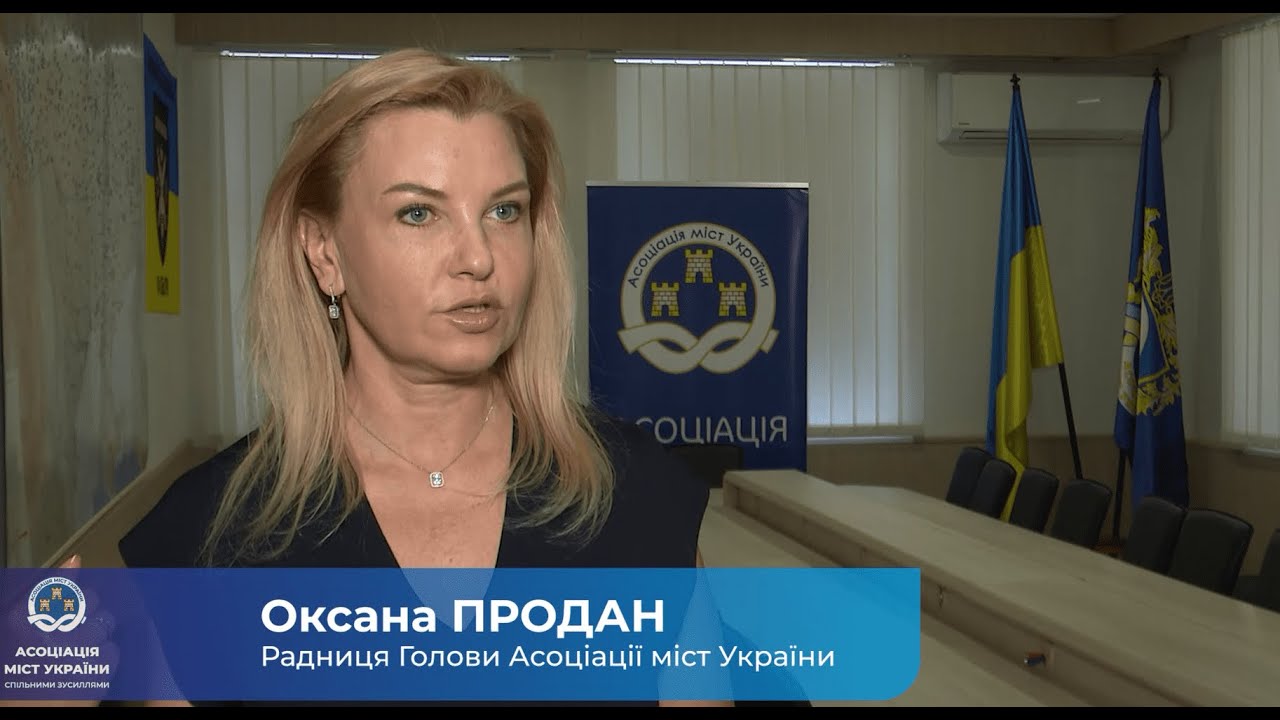
— In fact, it is worth saying that the head of the subcommittee, Vitalii Bezghin, has been acting according to the same scenario for two years. He, realizing that he has to organize some kind of communication to resolve this important issue, invents, so to speak, a simulation model. Thus, he invents that it is possible to meet with one association separately, to meet with another separately. In addition, Vitalii Bezghin also came up with the idea that he could separately organize meetings with me and with Yurii Hanushchak and then compile some kind of general picture based on these conversations. Then Vitalii Bezghin says: “You see, I heard everyone, and everyone expressed their point of view on the issue under consideration.”
— Thus, it turns out that there was no collective platform for joint and effective discussion of the topic, but there was, so to speak, a common analyzer. Speaking of a common analyzer of all opinions and advice, do we mean Vitalii Bezghin, in whose head all ideas and claims were processed, and then he published the finished product?
— It happened more or less like this. I understood this a long time ago and more than once publicly drew attention to the fact that this is a manipulative technology. It is worth noting the fact that perhaps some association, having heard my or Yurii Hanushchak's arguments, would understand that they are correct and would support them. After all, it must be said that representatives of these associations may simply not know or see something. Similarly, I may not take into account some nuances of the functioning of local self-government, which are better known to other associations. When everyone sits down together at the table and analyze and discuss common tasks and problems, develop ways to achieve important goals - in this case, we really hear each other and react adequately. However, it is worth saying that such a mechanism has not been in our country for three years since November 2021. Unfortunately, the situation in our country is deteriorating in this way.
— Another article, namely about the relations of local state administrations with enterprises, institutions and organizations. According to the state project, state administrations (USD) manage the property of enterprises, institutions and organizations that fall under their management. In addition, it is worth noting that the Head of the Ukrainian state administration (USD) concludes and terminates contracts with the heads of such enterprises and institutions. The Association of Cities of Ukraine (ACU) is categorically against it. Why is the situation developing in this way and the Association of Cities of Ukraine (ACU) against such legislative initiatives?
— I do not know why it turns out this way. If these enterprises were created by the administration itself or transferred to its management, then how could it be otherwise? Thus, it is worth emphasizing the fact that if this is their sphere of management, then in this case it is logical that the administration has the right to conclude contracts. Perhaps the situation is developing in this way because the Association of Cities of Ukraine (ACU) sees a risk in the fact that this provision may extend to some other category of enterprises, which in fact we all do not consider as belonging to the Ukrainian state administration (USD). In this matter, it is necessary to clarify the information and be quite attentive.
— Heads of enterprises, institutions and organizations that fall under the jurisdiction of ministries and other central executive bodies are appointed to and dismissed from their positions with the consent of the head of the relevant administration. Thus, it is with the consent of the head of the relevant administration that everyone except the heads of institutions, enterprises and organizations of the Armed Forces of Ukraine and other military formations is appointed to and dismissed from their positions.
— I completely agree on this issue. Commenting on this issue, it is worth saying that it is bad that the situation with the heads of enterprises, institutions and organizations that belong to the sphere of management of ministries and other central executive bodies is like this. Speaking on this topic, it is worth saying that this is part of another aspect of this law that we have not talked about before. This is what Yurii Hanushchak calls the threat of feudalization, and I call it— more carefully, namely, I call it excessive regionalization. It is necessary to emphasize the fact that a system is now emerging in which too much power and authority is concentrated in the hands of the head of the regional state administration.
— The situation is formed in this way because the powers between the center and local government bodies, and within the executive branch, are not separated from each other, right?
— That is exactly true. And if we recall that in some regions there is a risk of local business elites merging with the Ukrainian state administration and the government in general, then in this context it is worth saying that such a policy creates the threat of feudalization or excessive regionalization. It is worth emphasizing the fact that if we do not stop this now, do not distinguish who is responsible for which sphere of influence, then in the future even the Cabinet of Ministers of Ukraine will have problems communicating with such regions.
— So, we are talking about the need to distinguish powers between the center and local government bodies, and within the executive branch? In addition, all these decisions must be made in parallel and urgently.
— That's exactly what I mean. It is necessary to emphasize the fact that these important steps are directly spelled out in the Concept of Reforms that we are discussing. In the first version of our draft law, this was clearly stated: we distinguished functions between regional and district state administrations.
Moreover, it is worth saying that district — not only regional — state administrations should have the right to communicate directly with the Cabinet of Ministers of Ukraine. But in the latest version of the draft law, the heads of district state administrations do not have the right to address the government directly and can communicate with the Cabinet of Ministers of Ukraine only through the head of the regional state administration.
— In addition, it is worth adding that another argument for the creation of local self-government is the existence of 36 territorial controlling bodies of state power, to which the 37th is added, and this is great news. However, it is worth saying that members of the Association of Cities of Ukraine (ACU) are convinced that it is already too much to create so many territorial controlling bodies of state power.
— First, in essence, it is worth noting the fact that this law is least needed by those territorial bodies that the Association of Cities of Ukraine (ACU) mentioned. After all, in this case, the Cabinet of Ministers of Ukraine will receive a real picture of what is happening on the ground through the feedback system, namely, in the third case, the Cabinet of Ministers of Ukraine will receive a description of the real situation, which the ministers will not provide it with.
It is worth noting the fact that the situation is developing in this way because the Ministers are usually interested in objective information going only through their channels. And in this development of events, this information will come through a different line. Accordingly, for the accuracy of the information, the data will be verified and checked.
The situation is developing in this way because the territorial bodies are not interested in control. It must be said that the ministries are also not very interested in control, because they do not treat such things very well and warmly. In addition, speaking on the topic of the Central Bank, it must be said that especially in the Office of the President of Ukraine, things like control are not very welcome, because they put the monarch within the legal framework.
— And secondly?
— Secondly, the law clearly states that the head of the local state administration (LSA) does not have the right to exercise supervision where specialized control bodies already operate. In addition, our official law states that all these bodies, namely the police, prosecutor's office, treasury, etc. — do not overlap with the powers of the head of the state administration. Thus, all these bodies cannot protest the decisions of the head of the Ukrainian state administration — and vice versa, the heads of the Ukrainian state administration cannot protest the decisions of the above-mentioned bodies.
About district prefects, an alternative draft law that does not really represent anything and a way out of this difficult situation
— By the way, regarding 114 heads of district state administrations (RDA). It is worth emphasizing the fact that this is almost not mentioned, but the conclusions of the Secretariat of the Congress of Regional and Local Authorities of the Council of Europe state that their appointment can create excessive control over local self-government bodies. They say that the population in the districts is too small to appoint such a large number of heads of district state administrations (RDA) to control local government bodies. Please comment on how you assess this current situation, what you think about it?
— I believe that Yurii Hanushchak’s position, which he follows, namely, to focus on the French model, is quite correct. It is worth emphasizing the fact that our districts are designed as administrative districts precisely for the exercise of executive powers. In addition, it must be said that in terms of size — 200–300 thousand inhabitants — this is a completely optimal territory for the effective functioning of all administrative bodies, including prefectures.
Of course, in some rural areas, certain problems may arise — for example, pressure on heads of district state administrations (DSA). However, it must be said that it is very easy to fight this, because this will most likely be a subjective and isolated phenomenon. In addition, I want to say that I can’t imagine that the prefect puts pressure on the city at all, even if it is small.
— The mayor of Dnipro Borys Filatov publishes a post with an illustration: the mayor approaches the prefect Don Corleone and kisses his hand. Such memes are now circulating in our country. However, if you carefully analyze the situation that has developed, everything looks not so unambiguous. It is necessary to emphasize the fact that the District State Administration (DSA) is the executive body of the district council and supervises the communities. While the Regional State Administration (RSA) is the executive body of the regional council and supervises the district level. And the regional level is supervised by the central executive body. That is, it is worth saying that there is no synchronicity, namely, the work of the state structure does not look like some state body independently gave itself a task — independently performed it — and then this state body independently checked it. " Thus, in this scheme there is a cascade of a clear and understandable hierarchy between these state bodies.
— This is a matter of style — the mayor of Dnipro Borys Filatov or someone else. For example, in order to explain this situation, it is worth saying that Andrii Sadovyi in 2022 (when I saw it in practice) did not succumb to the innovations and policies of the head of the district administration at all and continued to do his job as always. It is worth emphasizing the fact that the regional administration could still somehow influence him, especially under martial law, and the rest of the state bodies could not exert any influence on him. However, speaking conceptually, of course, in the end we must make a decision to make some important changes to the Constitution of Ukraine.
— Please tell me about this alternative bill by Mr. Frolov, which was publicly supported by members of the Association of Cities of Ukraine (ACU). That is, what does this step mean for us? Why do we need it and what consequences can it lead us to? Tell me what are its risks or, conversely, its benefits for our country?
— Speaking on this topic, it is worth saying that no one shared the idea of this project with me. In my opinion, this is an attempt to divert attention and some votes from bill No. 4298. It is worth emphasizing the fact that the strongest argument of the authorities is that this law is spelled out in the Ukraine Facility Plan, and its adoption is associated with the allocation of significant funding to us from the European Union. And since it is not so much about the reform of local state administrations as about the introduction of supervision over the legality of local government acts, someone decided: let's just add one article to the current law and write out this supervision in the safest possible way — and we will not change anything else, so we will get the horse we need.
Meanwhile, it is worth noting that 90% of bill No. 4298 concerns the reform of state administrations and the coordination of the activities of central executive bodies (CEBs). And only 10% concerns relations with local self-government bodies (LSB).
— So, can we say that the system is not affected at all?
— That is exactly what is meant. These statements mean that the situation remains the same as it is now. Speaking on this topic, it should be said that the heads of administrations again do not have the status of civil servants, there is no control over their appointment, selection, etc. In addition, the draft law only concerns control over the delegated powers of local self-government bodies (LSB), and such a thing as supervision over the own powers of local self-government bodies (LSB) is not established at all. It is worth emphasizing the fact that this is precisely the interest of the Association of Cities of Ukraine (ACU). Therefore, this is a move in a completely different direction to divert attention, which I consider a tactical move to cause doubts about the correctness of their decision among those who are supposed to vote for this bill. However, it is worth saying that I do not see any obvious positive momentum and clear advantages in it.
— The question arises: How to act correctly in this situation — both for ardent opponents and for people's deputies who will make decisions in the committee and in the hall of the Ukrainian parliament?
— I adhere to the same position in my statements, namely, I believe that we need to sit down at a common table and agree in order to adopt an institutionally correct law. I believe that the powers of local state administrations (LSA) must be clearly and clearly delimited. I want to emphasize the fact that in order to achieve our goals and work effectively in the future, we need to clearly distinguish blocks: it is necessary to separately highlight such a thing as — supervision over the legality of local self-government acts and separately separate such a thing as — coordination of central executive bodies (CEBs). In addition, it is also recommended to separately highlight such a section as — implementation of decisions of district and regional councils.
Moreover, I believe that for the effective further work of our country and the achievement of our goals, it is also necessary to directly connect district administrations with the Cabinet of Ministers of Ukraine and create a full-fledged structural unit in the Secretariat of the Cabinet of Ministers of Ukraine that will communicate with the regions. It is worth noting that such an effective structural unit will communicate with district administrations. I think that this approach will reliably ensure the unity of state policy and increase its effectiveness.
It is worth saying that at the regional level, I would prepare all structures and processes specifically for the future European regional policy. According to my understanding, a regional council should be created - with clearly defined powers, without any interference in the security sphere and other sensitive issues. And, by the way, speaking on this topic, it is worth emphasizing the fact that we really do not need district councils. I believe that at the district level, communities can create intermunicipal cooperation councils - from representatives of community councils. Such political steps will be quite enough for the normal and successful functioning of all processes in our country.
Regarding regional councils - it must be said that they should have executive committees. It is necessary to emphasize the fact that this change will need to be made to the Constitution of Ukraine. In addition, it is important at the same time - to clearly outline the boundaries of their competence.
And another idea that we are currently discussing is that regional state administrations can be raised to a supra-regional level. That is, for the successful functioning of management processes, it is possible to create enlarged supra-regions and transfer the functions of the Regional State Administration of Ukraine (RSA) there. I believe that such an administration could supervise the legality of the actions of regional councils, as well as coordinate the work of district administrations.
Thus, as a result, it is possible to create such a model of state administration where one supra-regional administration would be responsible for three or four regions, but would coordinate not three or four districts, but 10–12. It is worth noting that such a structure of supervision by state bodies would be an effective model of further development.
Of course, this is possible only on condition that the President of Ukraine does not interfere here by putting forward his claims, does not pursue only his interests and does not call all this the “presidential vertical”. After all, it is worth saying that everything should work in the system of executive power, that is, in the government vertical. However, unfortunately, both the Cabinet of Ministers of Ukraine and the relevant ministry are taking a passive position on this key issue for public administration. And someone must finally take responsibility for implementing the reform, despite all the difficulties that arise.
Please select it with the mouse and press Ctrl+Enter or Submit a bug










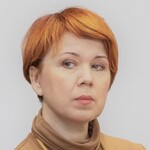

.jpg)


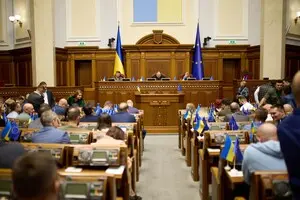
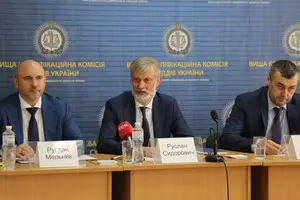


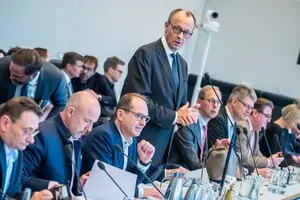

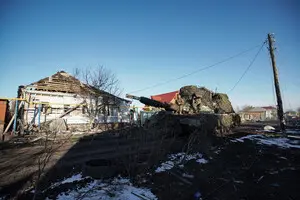
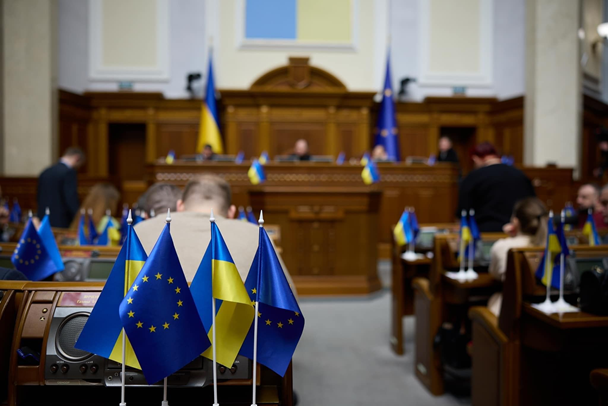



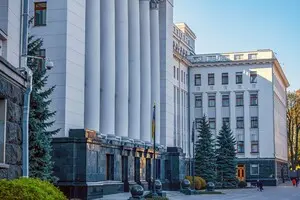


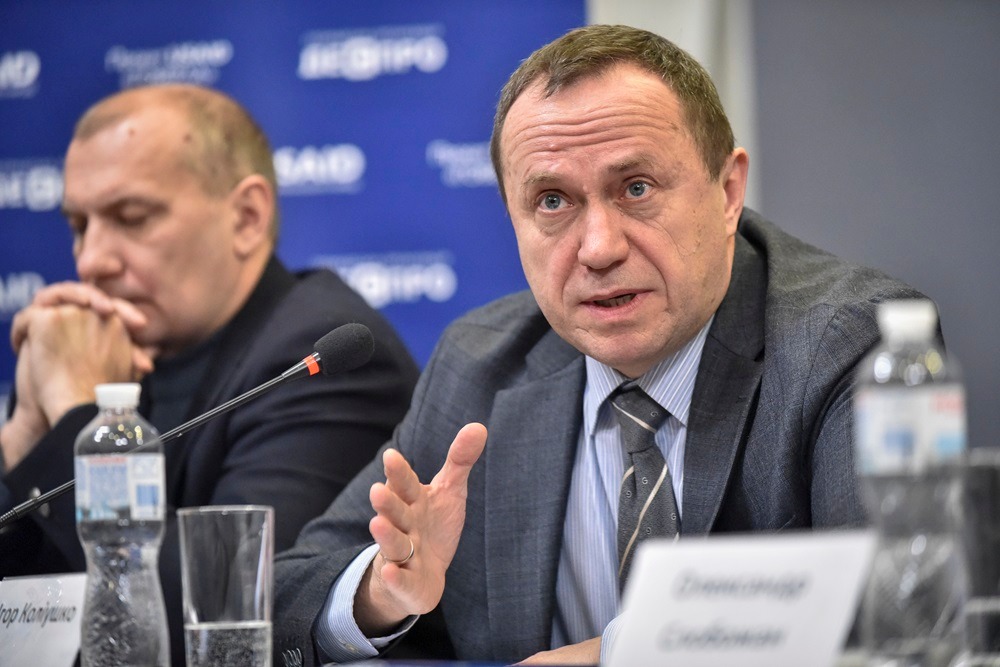


 Login with Google
Login with Google